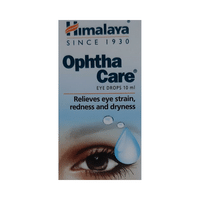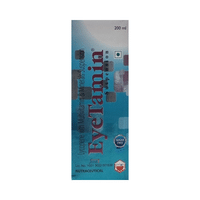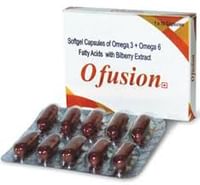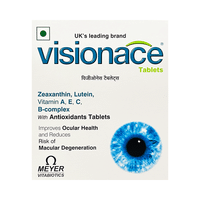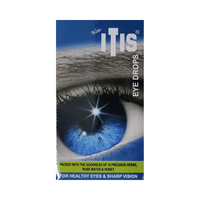Rs.109for 1 bottle(s) (5 ml Eye Drop each)
food interaction for 4 Quin-D
alcohol interaction for 4 Quin-D
pregnancy interaction for 4 Quin-D
lactation interaction for 4 Quin-D
food
alcohol
pregnancy
lactation
No interaction found/established
No interaction found/established
Information regarding the use of 4 Quin-D Eye Drop during pregnancy is not available. Please consult your doctor.
CONSULT YOUR DOCTOR
Information regarding the use of 4 Quin-D Eye Drop during breastfeeding is not available. Please consult your doctor.
CONSULT YOUR DOCTOR
SALT INFORMATION FOR 4 Quin-D
Moxifloxacin(5mg/ml)
Uses
Moxifloxacin is used in the treatment of bacterial eye infections. It is also used in infections of urinary tract, tonsils, sinus, nose, throat, female genital organ, skin & soft tissues and lungs (pneumonia).
How it works
Moxifloxacin is an antibiotic. It works by stopping the action of a bacterial enzyme called DNA-gyrase. This prevents the bacterial cells from dividing and repairing, thereby killing them.
Common side effects
Nausea, Diarrhea, Headache, Dizziness, Vomiting, Abdominal pain, Eye discomfort, Dry eye, Prolonged QT interval, Hyperemia, Anemia (low number of red blood cells), Palpitations, Sleep disorder, Blood cell abnormalities, Vertigo, Sleepiness, Muscle pain, Visual disturbance, Anaphylactic reaction, Increased glucose level in blood, Increased uric acid level in blood, Depression, Ventricular tachycardia, Photophobia, Hepatitis (viral infection of liver), Muscle weakness
Dexamethasone(1mg/ml)
Uses
Dexamethasone is used for Inflammatory conditions and Autoimmune conditions.
How it works
Dexamethasone is a steroid which works by blocking the production of certain chemical messengers in the body that cause inflammation (redness and swelling) and allergies.
Common side effects
Increased appetite, Edema (swelling), Increased intraocular pressure, Decreased potassium level in blood, Tendon rupture, Weight gain, High blood pressure, Increased glucose level in blood, Menstrual disorder, Glaucoma, Slow heart rate, Tachycardia, Arrhythmia (irregular heartbeats), Enlarged heart, Circulatory shock, Fat embolism, Fainting, Thromboembolism, Thrombophlebitis, Vasculitis, Glucose intolerance, Cushing syndrome, Fat accumulation, Conjunctival hemorrhage, Vitreous detachment, Conjunctival hyperemia, Posterior subcapsular cataract, Acne, Allergic dermatitis, Hair loss, Stretch marks, Facial redness, Fragile skin, Skin hyperpigmentation, Hypertrichosis (excessive hair growth), Hypopigmentation, Fluid retention, Growth retardation in children, Excessive hair growth on face, Hypokalemic alkalosis, Negative nitrogen balance, Hiccup, Nausea, Vomiting, Abdominal pain, Pancreatic inflammation, Anal itching, Defective spermatogenesis, Kaposi sarcoma, Hepatomegaly (enlarged liver), Anaphylactic reaction, Sterile abscess, Postinjection flare, Emotional lability, Headache, Idiopathic intracranial hypertension, Increased intracranial pressure, Myasthenia (weakness and rapid fatigue of muscle), Neuropathy, Personality changes, Seizure, Vertigo, Amyotrophy, Bulging eyes, Pulmonary edema, Impaired wound healing, Aseptic necrosis, Muscle weakness, Osteoporosis, Pathologic fracture of long bones, Steroid myopathy, Vertebral compression fractures, Increased liver enzymes
SUBSTITUTES FOR 4 Quin-D
1 Substitutes
1 Substitutes
Sorted By
 Rs. 189pay 67% more per ml of Eye Drop
Rs. 189pay 67% more per ml of Eye Drop
Expert advice FOR 4 Quin-D
- You have been prescribed Moxifloxacin for the treatment of bacterial infections of the eye.
- Do not skip any doses and finish the full course of treatment even if you feel better.
- Apply pressure on the corner of the eye (close to the nose) for about 1 minute, immediately after instilling the medication.
- Do not touch the tip to any surface, or to your eye, to avoid contamination.
- Wait for at least 5-10 minutes before delivering the next medication in the same eye to avoid dilution.
- It may cause short-term blurring of vision when first used. Use caution before driving or using machines.
- Do not wear contact lenses until your infection clears up.
- Make sure to use it within 4 weeks of opening the medication.














